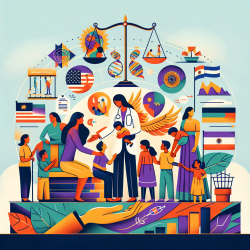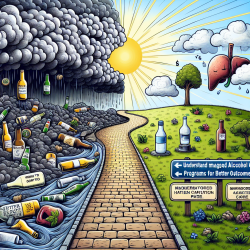Understanding Cultural Stress in Migrant Families: Insights from the Adelante Boricua Study
For practitioners working with migrant families, understanding the unique challenges these families face is crucial for effective support and intervention. The research article "Cultural Stress Theory in the Context of Family Crisis Migration: Implications for Behavioral Health with Illustrations from the Adelante Boricua Study" provides valuable insights into the experiences of post-Maria migrants, particularly Puerto Rican families who relocated to the U.S. mainland following Hurricane Maria.
Theories and Constructs: A Framework for Understanding
The article highlights several key theories and constructs that are essential for understanding the experiences of these migrants:
- Push and Pull Models: These models explain the factors that drive migration, such as economic hardship in the home country and opportunities in the destination country.
- Cultural Stress Theory: This theory examines how migration-related stressors, such as discrimination, impact family functioning and behavioral health.
- Crisis Migration: This concept considers how pre-migration crises, like natural disasters, act as tipping points for migration decisions.
- Cumulative Risk Models: These models explore how multiple stressors interact to influence post-migration adaptation and well-being.
Practical Implications for Practitioners
Practitioners can leverage these insights to enhance their support for migrant families:
- Tailored Interventions: Understanding the specific stressors and challenges faced by migrant families allows practitioners to design interventions that address these unique needs.
- Strength-Based Approaches: Emphasizing the strengths and resilience of migrant families can empower them to overcome challenges and thrive in their new environment.
- Community Engagement: Collaborating with community organizations can provide additional support and resources for migrant families.
Encouraging Further Research
The Adelante Boricua Study provides a foundation for understanding the experiences of post-Maria migrants, but further research is needed to explore the long-term impacts of migration on behavioral health. Practitioners are encouraged to engage in research and contribute to the growing body of knowledge in this field.
To read the original research paper, please follow this link: Cultural Stress Theory in the Context of Family Crisis Migration: Implications for Behavioral Health with Illustrations from the Adelante Boricua Study.










